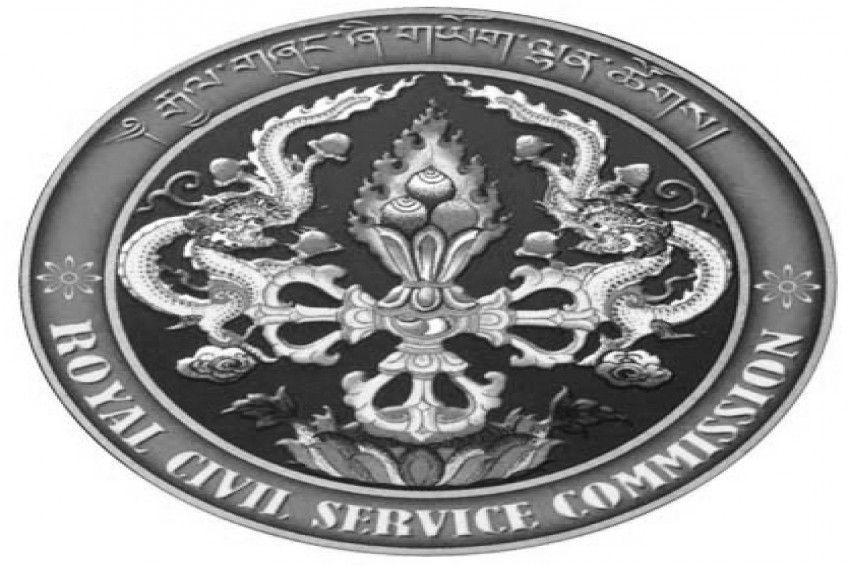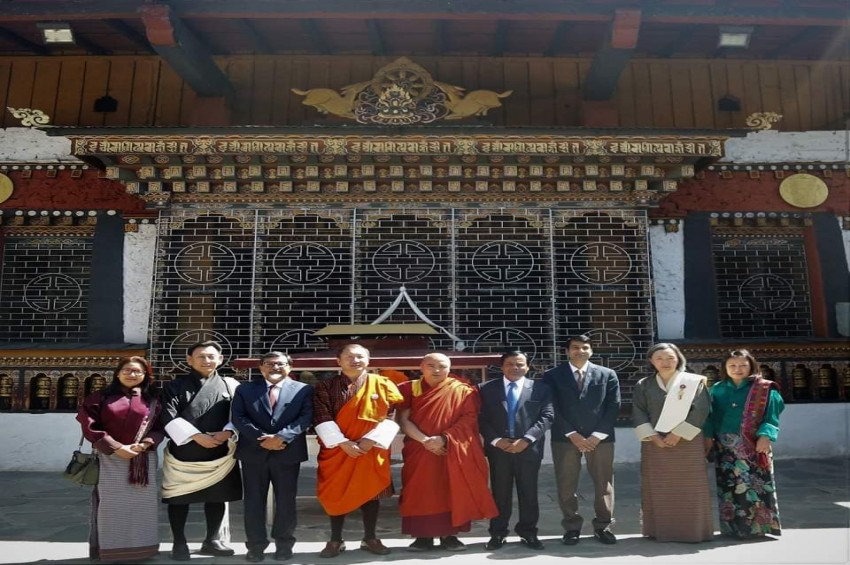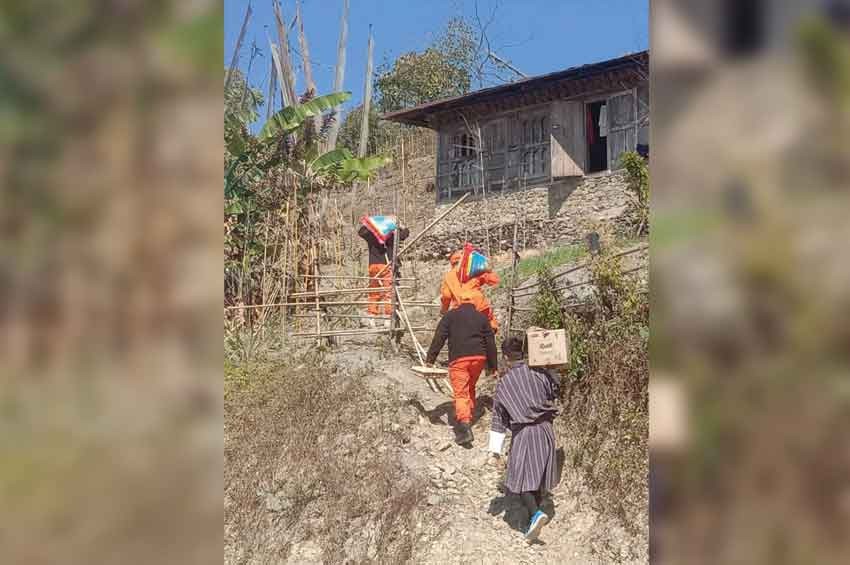Executives to be Constantly Under the Radar
In what is another giant step in the current leadership assessment and restructuring exercise conducted by the Royal Civil Service Commission (RCSC), the Commission has begun the process of managing out the 47 executives who have not been able to meet the expectations. Additionally, the RCSC has said executives who met the high expectations of the leadership assessment conducted earlier this year in no way guarantees their place or progression in the civil service. In other words, these executives would be assessed continuously.
RCSC has further said “civil servants, regardless of seniority, who find themselves unable to keep pace with these changes and therefore unable to effectively serve our citizens, may be managed out,” and that the RCSC will “continue to push for profound and lasting change that our country needs now and to be ready for the future.” The RCSC has also mentioned that Special Retirement offers were made to the ones “managed out.”
An official from the RCSC said assessments for executives who have been graded well and not managed out, would be ongoing. While there would not be an assessment of the type that was carried out, the ongoing assessment will contain most of the significant aspects of the current leadership assessment.
A civil servant, who said he is yet to get over the “tsunami” of the civil service mentioned “RCSC appears to be now acting” and lauded what was mentioned in the press release. “It is indeed sad for the 47; but it could have been anyone. However, in Bhutan we see agencies suddenly doing something and then losing the path somewhere. I just hope this will not be the case with the RCSC. They should keep the fire burning,” he said.
A mid-level civil servant based in Thimphu commented that “everyone is feeling the heat, which is good.” “The cascade affect is there. If 47 executives can be ‘managed out,’ the same can be done for others who are not performing well. Of all, I feel that all civil servants will now share responsibilities equally, and the current trend of some doing everything while others relax will evaporate,” he said. He added continuous assessment is important.
While 47 executives, comprising 7, 22 and 18 from the Secretary, Director-General and Director position levels respectively, were being managed out, two executives have taken up the offer to transfer to a lower position level and another to a specialist position level. Observers say filling in the 44 vacant positions with effective people would be a challenge. However, the RCSC said that activities towards this end are already being conducted and that the RCSC is working closely with executives to accelerate efforts to transform the civil service, which will “result in a fundamental shift and overhaul of the manner in which we deliver public services for our people, and how we organize our civil service agencies to do so.” RCSC will redesign public service delivery and reorganize agencies such that the well-being of our citizens and our future generations are front and centre. RCSC has said agencies may be merged, positions made redundant, and others streamlined.
This is also something most civil servants feel is appropriate. “With technological advancements, infrastructure development and other factors, agencies can now be merged. Some positions are no longer required and I do not think RCSC will need to fill in all the 44 vacant seats,” another Thimphu based civil servant said. He added that with “assessment” in the minds of civil servants, many will be happy to take more responsibilities. “I want to be blunt. A serious study needs to be conducted for the need of posts of DGs and Directors in agencies; there is a lot of duplication,” he said, adding the RCSC may have already done this.
On the Special Retirement offers, an officer from the RCSC said it included their retirement benefits and additional salaries of the months remaining before they superannuate, which is capped at a maximum of 24 months. This means that if executives superannuate in three months, they will get the benefits for the three months; those that are young and have time will receive the Special Retirement offer for two years.
The Journalist learnt that those taking the special retirement offer should hand over their responsibilities in a week’s time. On the other hand, there won’t be any immediate replacement for managed out executives. Officiating heads should take over the responsibilities.
Another important component the RCSC has mentioned concerns “citizen feedback.” RCSC has underlined that citizen feedback will feature more prominently, “so that we can better respond to our citizens’ needs.” “Our citizens should not be made to go in circles. They should get the services that they deserve, whenever they need them.” Agencies involved in public service delivery will need to have systems through which people can give feedbacks. It will become an important component for assessment and to improve services.
A former journalist said this will make people think out of the box. “Currently, no one thinks how service delivery can be improved. With measures as mentioned above in place, leaders and agencies will need to think, which will definitely improve service delivery,” he said.
Meanwhile, the RCSC has said that the recent leadership assessment exercise that started in January 2022 is a significant milestone in a series of transformational changes to revamp the civil service and RCSC's approach towards personnel and performance management.
The transformation of the civil service will be driven by agencies that continuously innovate, use data and technology to deliver services, and work effectively and efficiently with one another more collaboratively.
In what is another giant step in the current leadership assessment and restructuring exercise conducted by the Royal Civil Service Commission (RCSC), the Commission has begun the process of managing out the 47 executives who have not been able to meet the expectations. Additionally, the RCSC has said executives who met the high expectations of the leadership assessment conducted earlier this year in no way guarantees their place or progression in the civil service. In other words, these executives would be assessed continuously.
RCSC has further said “civil servants, regardless of seniority, who find themselves unable to keep pace with these changes and therefore unable to effectively serve our citizens, may be managed out,” and that the RCSC will “continue to push for profound and lasting change that our country needs now and to be ready for the future.” The RCSC has also mentioned that Special Retirement offers were made to the ones “managed out.”
An official from the RCSC said assessments for executives who have been graded well and not managed out, would be ongoing. While there would not be an assessment of the type that was carried out, the ongoing assessment will contain most of the significant aspects of the current leadership assessment.
A civil servant, who said he is yet to get over the “tsunami” of the civil service mentioned “RCSC appears to be now acting” and lauded what was mentioned in the press release. “It is indeed sad for the 47; but it could have been anyone. However, in Bhutan we see agencies suddenly doing something and then losing the path somewhere. I just hope this will not be the case with the RCSC. They should keep the fire burning,” he said.
A mid-level civil servant based in Thimphu commented that “everyone is feeling the heat, which is good.” “The cascade affect is there. If 47 executives can be ‘managed out,’ the same can be done for others who are not performing well. Of all, I feel that all civil servants will now share responsibilities equally, and the current trend of some doing everything while others relax will evaporate,” he said. He added continuous assessment is important.
While 47 executives, comprising 7, 22 and 18 from the Secretary, Director-General and Director position levels respectively, were being managed out, two executives have taken up the offer to transfer to a lower position level and another to a specialist position level. Observers say filling in the 44 vacant positions with effective people would be a challenge. However, the RCSC said that activities towards this end are already being conducted and that the RCSC is working closely with executives to accelerate efforts to transform the civil service, which will “result in a fundamental shift and overhaul of the manner in which we deliver public services for our people, and how we organize our civil service agencies to do so.” RCSC will redesign public service delivery and reorganize agencies such that the well-being of our citizens and our future generations are front and centre. RCSC has said agencies may be merged, positions made redundant, and others streamlined.
This is also something most civil servants feel is appropriate. “With technological advancements, infrastructure development and other factors, agencies can now be merged. Some positions are no longer required and I do not think RCSC will need to fill in all the 44 vacant seats,” another Thimphu based civil servant said. He added that with “assessment” in the minds of civil servants, many will be happy to take more responsibilities. “I want to be blunt. A serious study needs to be conducted for the need of posts of DGs and Directors in agencies; there is a lot of duplication,” he said, adding the RCSC may have already done this.
On the Special Retirement offers, an officer from the RCSC said it included their retirement benefits and additional salaries of the months remaining before they superannuate, which is capped at a maximum of 24 months. This means that if executives superannuate in three months, they will get the benefits for the three months; those that are young and have time will receive the Special Retirement offer for two years.
The Journalist learnt that those taking the special retirement offer should hand over their responsibilities in a week’s time. On the other hand, there won’t be any immediate replacement for managed out executives. Officiating heads should take over the responsibilities.
Another important component the RCSC has mentioned concerns “citizen feedback.” RCSC has underlined that citizen feedback will feature more prominently, “so that we can better respond to our citizens’ needs.” “Our citizens should not be made to go in circles. They should get the services that they deserve, whenever they need them.” Agencies involved in public service delivery will need to have systems through which people can give feedbacks. It will become an important component for assessment and to improve services.
A former journalist said this will make people think out of the box. “Currently, no one thinks how service delivery can be improved. With measures as mentioned above in place, leaders and agencies will need to think, which will definitely improve service delivery,” he said.
Meanwhile, the RCSC has said that the recent leadership assessment exercise that started in January 2022 is a significant milestone in a series of transformational changes to revamp the civil service and RCSC's approach towards personnel and performance management.
The transformation of the civil service will be driven by agencies that continuously innovate, use data and technology to deliver services, and work effectively and efficiently with one another more collaboratively.












